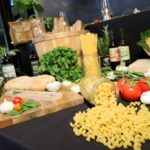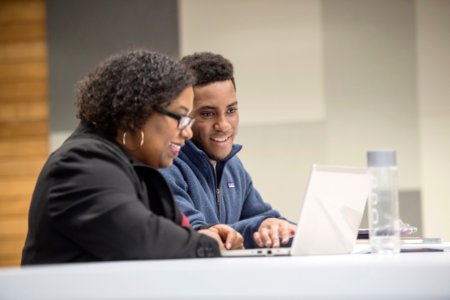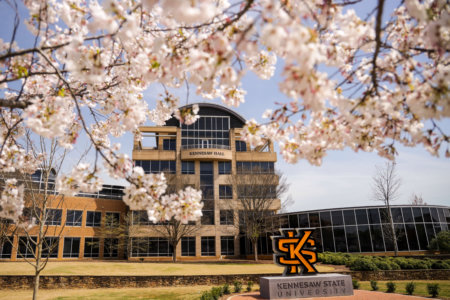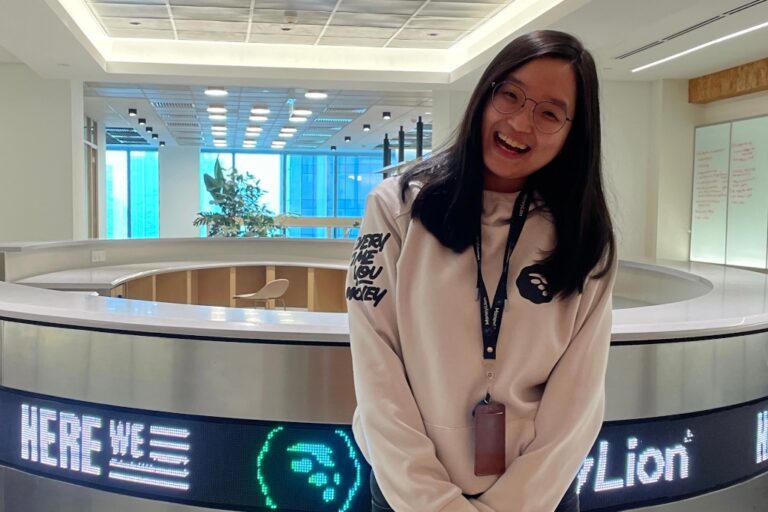
What do the worlds of biology and data science have in common?
On the face of it, nothing much. Studying biology is about exploring humans, plants, animals, and the environments in which they live, whereas data scientists turn data into impactful information for businesses and organisations.
But Hui Wen Chong’s story will change your perspective on how you view these two subjects.
As a biology student at the University of Manchester (UoM), she wrote a thesis on “Time Perception: Sequential Driving Effects of Modality on Working Memory.” She also published a bioinformatics research paper on a novel schizophrenia-linked gene mutation.
At the same time, Hui Wen found her passion for hackathons — thanks to an opportunity by Axiata, specifically its University Leadership Development Programme, which is designed for Malaysian undergraduates to learn the skills and knowledge required to be a future CEO.
“It was a boot camp for university students on business simulations and different case studies,” the Malaysian biology graduate tells Study International.
“It really brought non-business background students into one and had many boot camps together. It was then that I realised that there are so many things that even biology students can explore, [such as] entrepreneurship or digital skills.”
In her final year, she joined a Global Digital Hackathon by Accenture. Competing against 100 teams, Hui Wen ranked first in the UK, second in Europe, Middle East and Africa (EMEA), and fourth in the world.
She developed Mentorite, an e-mentoring web app that uses machine learning (a term used to describe how artificial intelligence learn) to streamline the mentorship pairing process and develop the potential of underrepresented youth.
Look back at Hui Wen’s childhood and you’ll discover the seeds of her curious nature.
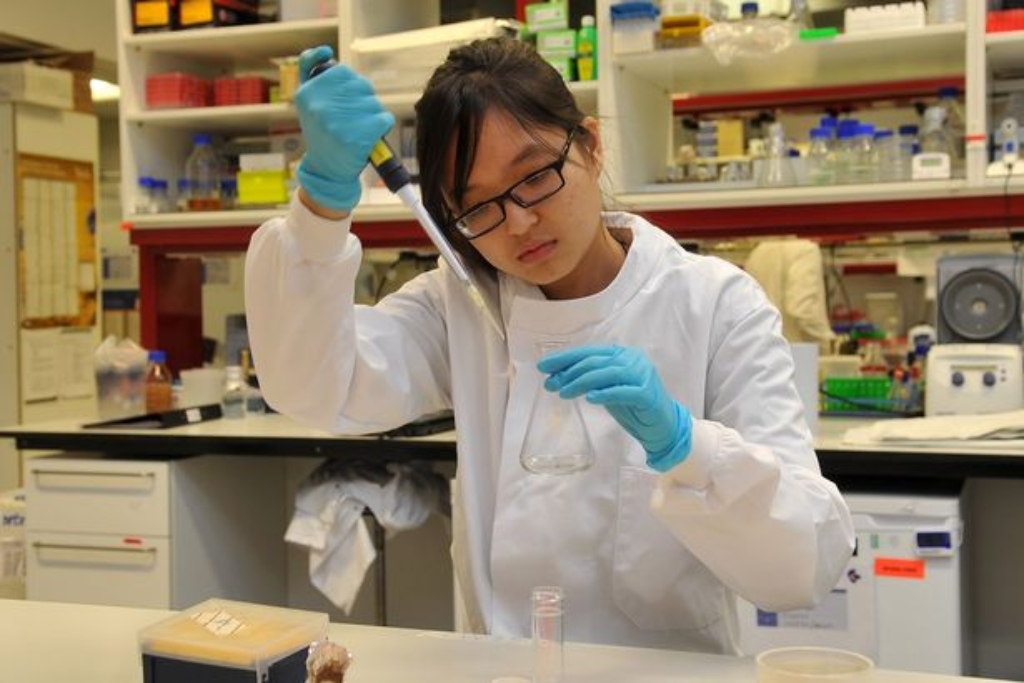
Hui Wen graduated with a Bachelor and Master in Biology at the University of Manchester under the MyBrainSc full scholarship by the Ministry of Higher Education Malaysia. Previously, she was studying dietetics at Universiti Sains Malaysia. Source: Hui Wen Chong
Early life in Malaysia
Growing up, Hui Wen was inclined to art and languages. She found herself attracted to humanistic artistic subjects, including writing.
“I love to write, draw, doodle, things like that,” she shares.
“But growing up in an environment that has been strongly skewed to science meant that science became the more logical thing to do.”
During high school, Hui Wen was in the science stream. This was when Malaysian high schools practised the Arts and Science streaming system for upper secondary students before replacing it with the Science, Technology, Reading, Arts and Music (STREAM) education system.
“Then, I went to a matriculation college in Kedah doing science stream, followed by a year in Universiti Sains Malaysia (USM) for my degree in dietetics before pursuing my bachelor’s and master’s in the University of Manchester.”
The Matriculation Programme is a preparatory programme for students who want to pursue a course at the first and second degree levels in science, technology and professional arts at public universities locally and outside the country.
“In matriculation, the more logical choices for [a] degree are usually medicine, dentistry, pharmacy, if you’re inclined into biology-related areas,” she explains.
“I wasn’t interested in either of those, but I love food, so I thought that was something I could do.”
When Hui Wen accepted her offer to pursue dietetics at USM, she also received conditional offers from UK universities to pursue cognitive neuroscience, which leaned into her interest in humans and psychology.
Due to financial constraints, Hui Wen deferred her entry.
Still, she continued to apply for a scholarship to realise her dreams of studying abroad.
That persistence paid off. She was later awarded the MyBrainSc Overseas Scholarship by the Ministry of Higher Education Malaysia.
It funded Malaysian citizens who wanted to pursue a full-time bachelor’s or postgraduate degree in the field of natural sciences at local Institutions of Higher Learning (IHL) and the world’s top universities or Ivy Leagues.
“Since young, I always could make my own choices in life. So for me, it has been very clear since the beginning that whatever I wanted to study, through whatever means, I had to find my way to get it,” Hui Wen shares, stating that this mindset of hers is the starting point of her North Star — a term usually used to describe long-term, high-level, aspirational goals that motivate, inspire, and uplifts the goal-setter.
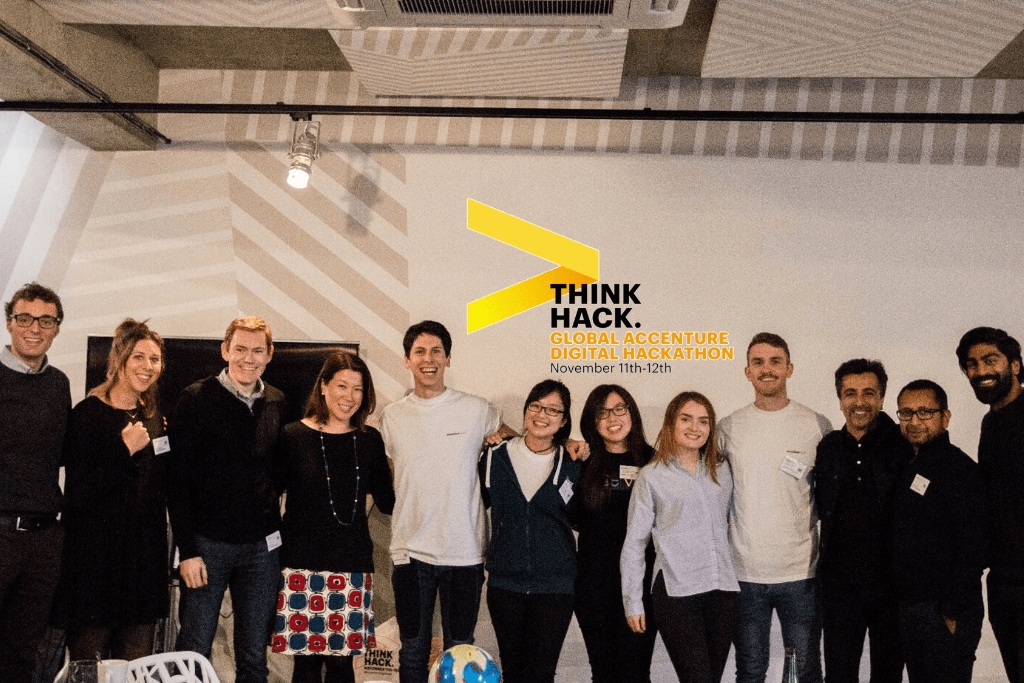
Hui Wen (pictured seven from the right) was part of the team that won as champions in the UK, second in the EMEA region, and fourth in the world with an AI-driven mentoring platform for underprivileged students. Source: Hui Wen Chong
A trained scientist, a hackathon enthusiast
As part of her scholarship terms, Hui Wen opted to pursue a degree in biology instead of cognitive science at UoM.
Still, she was happy with this decision since the university had a diverse student profile and a strong balance between theoretical application and hands-on experience.
“What I really enjoyed about my bachelor’s and master’s degree at UoM was the structure,” Hui Wen says.
“The biology degree and master’s degree offer very good flexibility on the type of courses you choose. Essentially, you get to design your own bachelor’s degree and master’s.”
While there are certain prerequisites every student has to take during the first year, the flexible programme structure allows you to work backwards from your career goal.
“I had a wide range of interests in many different areas, so this type of degree really suits my personality,” she shares.
“I started off being interested in animals and evolution. Later, I tried to marry what I love in animals with neuroscience. From neuroscience, I got into computational biology. Little did I know that from neuroscience, I’m now a data scientist. So it’s funny how the dots are being connected.”
Outside of school, Hui Wen had the chance to apply her data analytical skills beyond her core subjects.
Take the International Genetically Engineered Machine Competition, for example.
“It is a synthetic biology competition for university students, where we genetically engineered bacteria into an alcohol sensing patch to tell you how drunk you are,” Hui Wen explains.
“We represented our university and competed in the US. We were Gold Medalists and had the Best Computational Model. That experience was great since it brought biology and engineering students to create something new.”
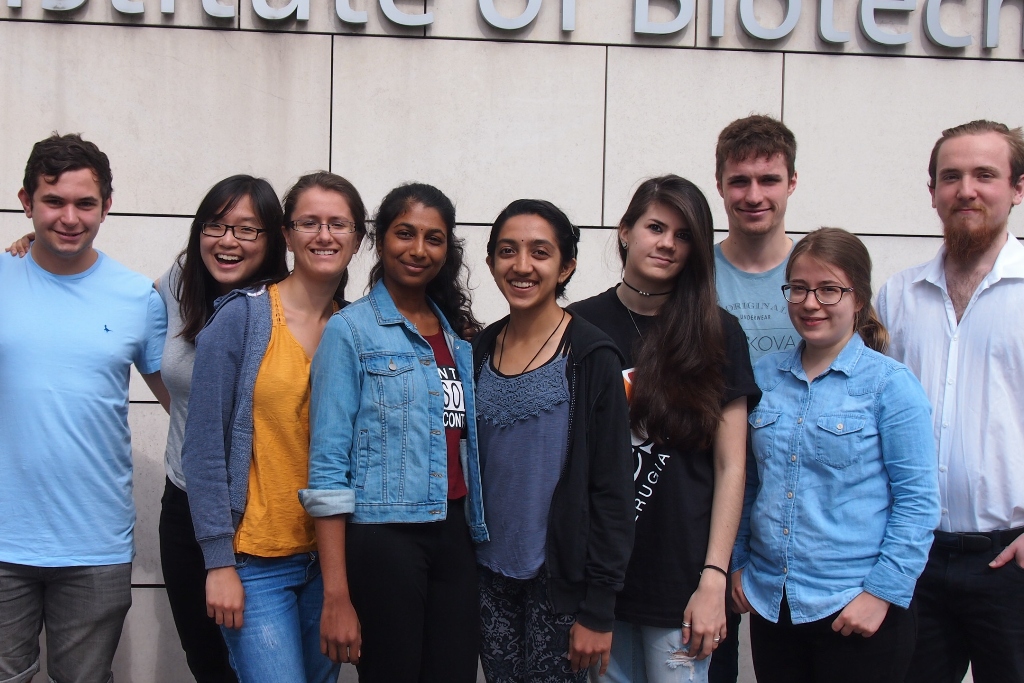
Hui Wen (pictured second from the left) represented the University of Manchester to participate in the global synthetic biology competition. Her team won the Gold Medal and Best Computational Model with their alcohol biosensing patch. Source: Hui Wen Chong
Returning to Malaysia to serve her five-year scholarship bond
In August 2023, a report by ThinkImpact highlighted that 7% of students are likely to receive a scholarship in the US.
For many who desire to study abroad, scholarships can be a tool to achieve their dreams. When it came time for Hui Wen to return home and serve her five-year scholarship bond, she had mixed feelings.
“It wasn’t easy, knowing how my degree and master’s at The University of Manchester had opened more doors. Not just within the biology sector, but way beyond it and country borders,” she wrote on her LinkedIn.
Still, she shares during the interview: “In the end, I know my priorities. The opportunities I’ve gotten are the blessing and contribution of many people — not just my family — but also the taxpayers and scholarship providers. Having that priority in place makes other questions smaller.”
On top of this, the biology graduate believes that if she is good enough, opportunities will return one way or another. Plus, she would finally have the chance to spend quality time with her family after being away for seven years.
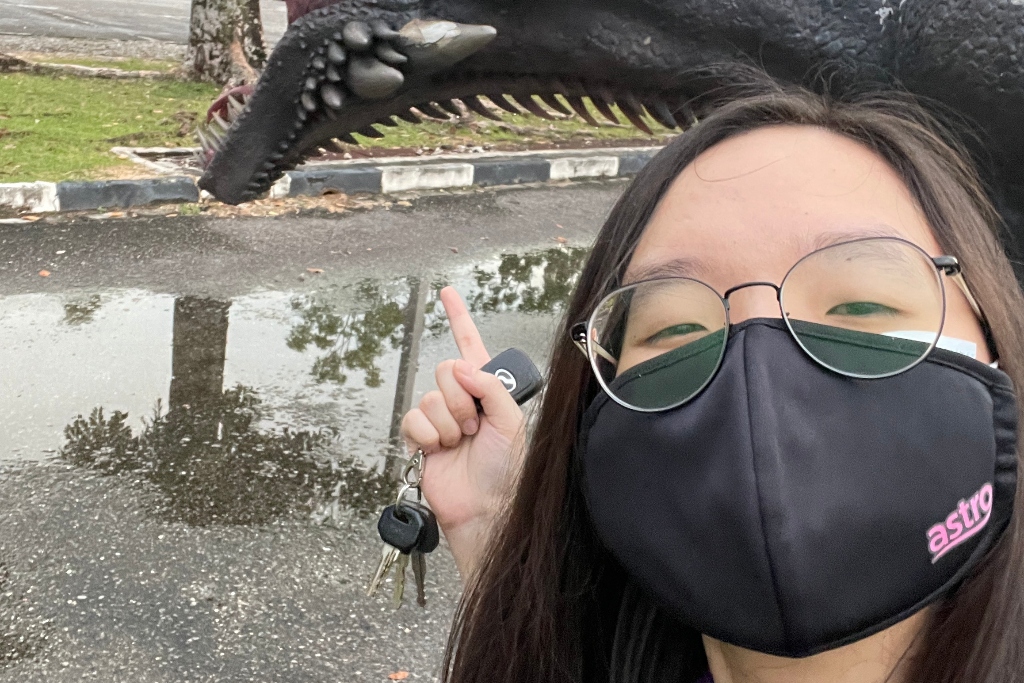
Upon graduation, Hui Wen pursued her interest in storytelling and started a career in the media industry. Soon, she found a new medium for storytelling: data. Eventually, she became a self-taught data scientist. Source: Hui Wen Chong
Change careers: From biology to data science
At Astro, the biology graduate joined the Astro Management Associate Programme — a two-year programme where Hui Wen cycled through different pillars of the business. Astro is Malaysia’s leading content and entertainment company.
“I’ve gone into many areas, including strategy, finance, content, commerce, and data, among many, many other things,” she shares.
“It’s a huge learning [curve] and a very steep one, going from one pillar to another in a very short time since it’s not just about learning, but deriving value out of it as well.”
At the time, Hui Wen’s biggest learning was polishing her storytelling skills. Here, she found her gift and interest in helping tech and non-tech people communicate with each other — leading her to discover a new medium of storytelling: data.
“From there, I noticed that data analytics and data science are our quickly growing areas. After taking courses and learning more about data science, I started my journey as a data scientist at Astro,” she shares.
“We do a lot of projects and models to understand our customers [and] predict business outcomes.”
Upon discovering her new-found skills, she moved to MoneyLion — a leader in financial technology powering the next generation of personalised products and content.
“As a data scientist, we develop financial products and services, including loans, banking, credit-building tools, and many more, to help Americans make better decisions.”
Hui Wen used most of her time at MoneyLion to design and implement a recommendation engine for users — a project she’s incredibly proud of.
“It was a personal win from a storytelling and technical perspective. With the engine, I’m able to surface the stories that matter. I’ve also taught myself programming, which is a huge step up for me when nurturing that developer mindset of dealing with larger systems,” she enthuses.
As a trained scientist, Hui Wen addresses uncertainties by forming hypotheses. Such an analytical approach eased her transition into the data science field.
What’s more, by participating in various global competitions, she developed an ability to read the energy within a room and understand what people care about when working on a particular project.
“When you are in a culture pot, whether you like it or not, you are just in the environment and you have to deal with it over a long period of time. That built my sensibility towards people.”
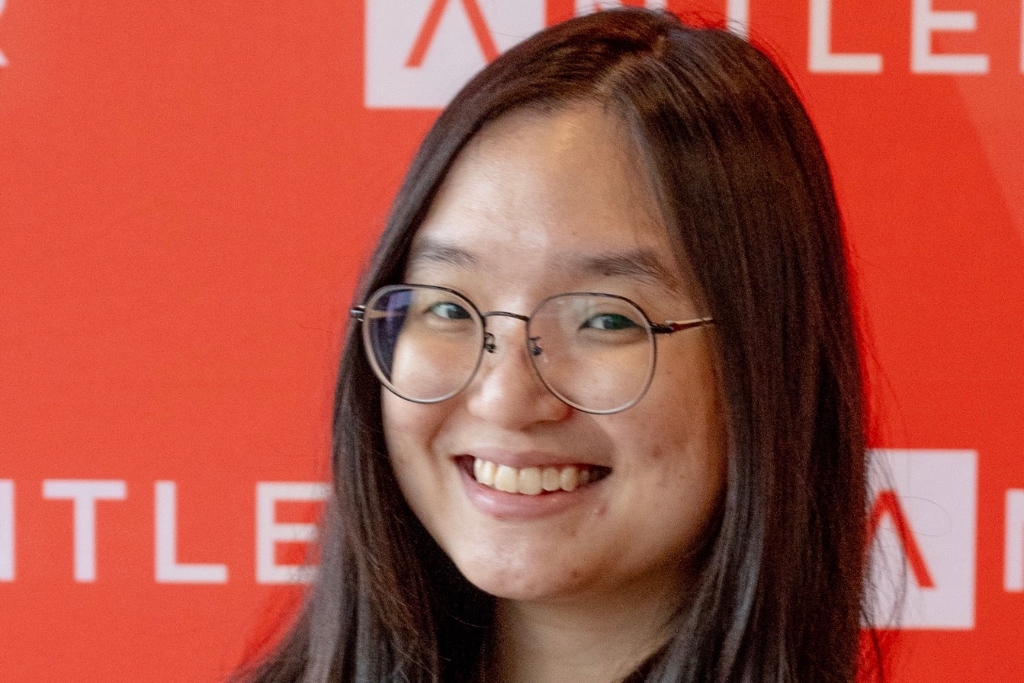
Now, Hui Wen has left the corporate world to finally pursue entrepreneurship with Antler. Source: Hui Wen Chong
Embracing her North Star of integrity
Throughout her life, Hui Wen embraced three North Stars: integrity, identity, and family.
“Integrity means making the hard but needed decisions — prioritising what matters most to you. It may not need to be at someone else’s expense, but it can be hard,” she shares.
“What integrity would look like for me would be to come back and serve my bond and spend time with my family. As an employee, integrity is when people that they can trust with the product and money to build things that truly solve problems.”
Fuelled with a desire to explore her passion for entrepreneurship and embrace the value of integrity, Hui Wen left MoneyLion to kickstart a new journey with Antler, an early-stage venture capital that works with aspiring founders.
“It has establishment across different countries and areas where they back day zero founders, meaning you may or may not have entrepreneurship experience,” shares the former data scientist.
“They get a group of like-minded people together in a 10-week programme where we undergo a series of activities like boot camps, master classes, and workshops, to help us find co-founders and startup ideas.”
Individual founders will build and launch their companies with Antler’s support through a 10-week residency. They stand a chance to get the opportunity to pitch for an investment of US$110,000 for a 12% equity stake.
In December 2023, Hui Wen graduated from the first batch of founders from Malaysia who joined the 10-week residency. “I’m now at a different phase where I’m still trying to figure out what to do next,” she shares.
Being someone who has been at the crossroads of endless opportunities, she advises international students to follow their passion: “Trust the gut feeling and process, as one day, you’ll see how the dots connect.”





